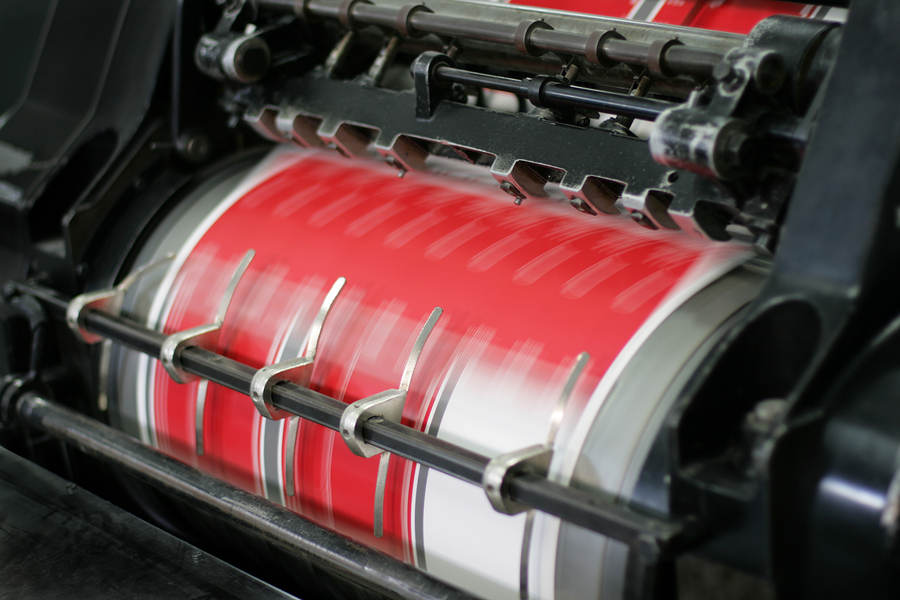A Comprehensive Overview to Recognizing Litho Printing Strategies
The world of litho printing, a method originating from the late 18th century, is a fascinating mix of history, art, science and innovation. Remain with us as we journey into the exciting world of litho printing.
The Historical Development of Litho Printing
The historic trajectory of litho printing, a crucial technology in the realm of communication, is an exciting tale of human resourcefulness. Birthed in the late 18th century by Alois Senefelder, this technique was initially a cost-effective approach of publishing staged jobs. Lithography, originated from the Greek words for 'stone' and 'to create', made use of a smooth stone surface to move photos onto paper. The procedure evolved with the introduction of the rotating press, which greatly increased productivity (litho printing). In the 20th century, the development of balanced out lithography transformed the market, permitting for automation of top quality prints. Each stage of litho printing's evolution showcases humanity's ruthless search of performance and quality in aesthetic interaction.
Deciphering the Scientific Research Behind Litho Printing Inks
Progressing in the exploration of litho printing techniques, the focus currently moves to the science behind litho printing inks. The make-up of these inks, their drying out process, and shade mixing methods form the foundation of this complicated art kind. Recognizing these components is important to grasping the craft and achieving the desired print results.
Structure of Litho Inks
In lithographic printing, the essential role of litho inks can not be overemphasized. Pigments, the color-providing aspects, are carefully ground particles put on hold in the automobile, a liquid that brings the pigment onto the printing surface. Each element plays a critical component in the final print's quality, making the precise formula of litho inks a detailed science.
Ink Drying Refine
From the make-up of litho inks, focus turns to the fascinating procedure of ink drying out. Two key techniques are made use of in litho printing: oxidative drying out and absorption. Absorption, on the other hand, involves the ink permeating into the paper fibers, which is a faster process yet can lead to much less dynamic colors.
Color Combining Strategies
While the drying process plays a key role in litho printing, the science of color mixing strategies holds equal importance. The science behind litho printing inks likewise takes right into account the openness of the ink, which influences just how colors overlay and mix.
The Art and Style Aspects in Litho Printing
Litho printing breathes life right into art and layout via its unique components. The process involves creating a picture on a lithographic sedimentary rock plate or steel plate with a smooth surface area. The photo is then printed onto a tool, usually paper, by transferring the ink from the plate. What collections litho publishing apart is its capacity to duplicate detailed styles with high integrity, making the result nearly the same to the original artwork. This is accomplished via making use of various line techniques such as stippling, hatching, and cross-hatching, which allow for a variety of tonal effects. Litho printing suits a selection of colors, making it possible for musicians to develop vivid and dynamic prints. This mix of accuracy and flexibility makes litho printing a preferred selection for numerous artists and designers.
Modern Applications of Litho Printing Techniques
Litho printing methods have found comprehensive usage in the contemporary industrial market. Its influence and importance remain to grow with the introduction of new innovations and modern technologies in the area. This area will certainly explore these modern applications and the transformative function they play in the printing industry.
Commercial Litho Printing Makes Use Of
Litho printing continues to be an important part of the business industry. High-volume printing this website tasks, such as the production of books, newspapers, and product packaging, count on litho printing for its ability to deliver exceptional image top quality and price performance. Litho printing also provides a wide shade spectrum, superior to that of electronic printing.
Technologies in Litho Printing
Pressing the borders of typical methods, modern-day innovations have fueled a host of advancements in litho printing. These advancements have not just enhanced the quality and effectiveness of litho prints however likewise expanded its application scope. One noticeable growth is electronic litho printing, which combines the virtues of digital technology with litho's high-grade result. This crossbreed model provides faster setup times, decreased waste, and allows on-demand printing. Another significant innovation is the introduction of eco-friendly inks. These inks, made from vegetable or soy-based solutions, have dramatically reduced the industry's environmental impact. litho printing. Additionally, the growth of innovative plate innovation has structured the printing process, leading to sharper images and boosted shade integrity. These advancements highlight the enduring importance of litho printing in the modern-day world.
Exploring the Process of Litho Printing: Detailed

Difficulties and Solutions in Contemporary Litho Printing

Regardless of the accuracy and practice that litho printing happily promotes, it is not without its collection of modern difficulties. Digital litho printing enables for affordable short runs and easy personalization, attending to the problem of variable data. Thus, while there are challenges, the litho printing sector is proactively adjusting to fulfill them head-on, check my source guaranteeing its significance in the future.
Conclusion
Finally, litho printing, with its rich background and clinical ins and outs, holds a considerable place in the print industry. As the overview exposes, it's a synthesis of art and innovation, with contemporary advancements guaranteeing its importance. The sector encounters obstacles that require innovative solutions, with an emphasis on automation and sustainability. The future of litho printing depends upon its capability to adapt to these altering demands, attesting its long-lasting value in an evolving market.

Comments on “A Complete Guide About litho printing”